Let’s not play cute games about beauty being on the inside or in the eye of the beholder. We’re all living in the same world here, right? We know that certain people are considered attractive and others aren’t?
If we can’t agree on that basic premise then I’m not sure there’s much point proceeding with this conversation. And since I’m in transmit-only mode, lucky for me I don’t need to waste time quibbling over such pedantry.
So let’s accept a basic premise: There are certain cultural standards of beauty that are widely agreed upon and recognizable.1
You’ll never attain perfect beauty, and the closer you get the more you’ll be punished or scrutinized or expected to deny it or apologize for it.
Beauty standards now are pushing us to cross the uncanny valley, to remove our buccal fat and become poreless sculptural masterpieces.
I saw a really interesting talk about this in which Elise Hu discusses the Technological Gaze—the algorithmically-driven perspective we internalize with the help of filters and AI. Fascinating stuff if you’re interested.
But I digress.
A woman who is aware of her beauty and willing to wield it is a femme fatale. An Angelina Jolie type. A Regina George.
We hate her. She’s a seductress and a harlot, probably evil, maybe a witch, surely a bitch.
We love a beautiful woman, but only when she has the proper humility to feign ignorance of it.
So we like our beautiful women frail, insecure, apologetic. They should have their long-lashed eyes forever downcast.
They should always strive for yet more beauty, because they know they couldn’t possibly have attained it.
Cling desperately to your youth, girls. You can’t.
And don’t let them see you try too hard because then you’re vain and tragic.
It’s Sisyphean labor, this endless, thankless pursuit of beauty.
I understand the rules of this game. I know I’m not supposed to recognize my own beauty, and I definitely shouldn’t talk about it. When receiving compliments I ought to modestly deny my good looks—oh it was the lighting, I should protest, a lucky angle, a renegade flattering photo.
But I was beautiful.
I’m not blind, I won’t pretend not to see what’s in front of my eyes. Now you can hate me for my searing self-knowledge and the shamelessness with which I talk about it. That’s fine.
My beauty is both mine and not mine. A gift bestowed by the fleeting, changeable opinions of others. Something capricious yet precious that I’m meant to preserve and amplify but never seem too aware of.
I have been noticeably beautiful all my life. Perhaps not in the most glamorous or jaw-dropping way. More like a bowl of spaghetti. Not the most exciting thing on the menu, sure, but with a broad base of recognizable appeal.
So I could achieve a certain amount of success at this beauty game without trying.
Rather than using my existing privilege to acquire yet more power and move ever closer to the ideal, I decline to play the game. I’m proud of myself for this.
I don’t remove body hair, or get Botox. I don’t diet or wear makeup except on special occasions when I do it for fun, for myself.2 I love a bright bold lip. I don’t style my hair or wear tight clothes or uncomfortable shoes. I swim in trunks, never a bikini. I haven’t had a professional haircut since 2015. I embrace my grey hairs and my laugh lines.
In short I prioritize my comfort and enjoyment above any standards of beauty.
I have spent the past several years feeling secretly smug and pleased with myself for the work I’ve done to divest from beauty culture. It’s like how people who have money can afford to be snobby about the things other people are willing to do to get some.
Part of this is inherently political: We can’t change the existing systems of power unless those of us with power are willing to give some of it up. To say enough. To cease our relentless pursuit of more, more, more.
But then—am I not worthy of that power? Maybe I have an obligation to use my head start in life to accrue as much power as possible so that I can use it for worthy ends? Wouldn’t I wield it for good?
I have chosen to opt out of the attempt to accumulate more beauty power. That is my privilege and my choice and I certainly don’t judge other women in different circumstances to my own who make different choices.
To be clear, I have a lot of intersecting privileges that allow me to divest in this way: I’m white; I’m (relatively) able-bodied; I’m a new-ish mother which is a pretty big permission slip for the sin of an imperfect body and a pudgy belly; I’m heterosexual and happily married; I’m young-ish; and I have a gorgeous face.
For me, divesting from beauty culture does not come with the same tangible loss of power or earning potential that it does for many women.
I am self-employed and don’t work in a corporate environment or a field where beauty labor is required of women (either implicitly or explicitly). I’m not delivering presentations in front of an audience, or wooing potential clients. No one is judging me for failing to wear heels to the office.3
And when I host weekly pub trivia, I tend to “make myself presentable”—a bar that sounds low but invariably includes makeup and something other than sweatpants.
All that said, I’ve had a powerful ego story about my divestment from beauty culture.
Cancer is causing a reckoning.
I will lose my hair and my eyebrows. My skin will age. I will be ill, and tired, and I will look it.
I’m now forced to confront that I did still have a real attachment to my beauty. I thought I had moved beyond that attachment, but I was deceiving myself.
I’m not prepared to no longer be beautiful.
It makes me sad and weepy to see the crone in the mirror instead of the maiden.
Maybe my “divestment” wasn’t some enlightened stance or a political act but more a realization that beauty was not a game that I (or anyone!) could ever win.
It’s not dissimilar to how I used to feel about studying for tests: Not studying was an effective defense mechanism, because then when someone else achieved a better result I could persuasively tell myself, Well I wasn’t even trying. Of course if I had tried I would have beaten her! Ditto to beauty.
This elusive her might be more beautiful than I am, but she has lip fillers and eyelash extensions and weekly brow sculpting appointments and professionally dyed and blow-dried hair and a full face of makeup, so of course she’s more beautiful than I am. It’s probably a filter anyway. And while she spends hours at the gym I’m busy reading novels or making art so whatever, who’s really winning???
That was a very comfortable and self-indulgent narrative for me. I might not be the most beautiful woman in the room, but my ego was soothed nonetheless.
It’s easy to have ideals and values when they cost you nothing.
Up until now it has been my privilege to “reject” beauty culture, because I still benefit from it enormously and have plenty of the power that flows from it.
It will no longer be my choice or my privilege.
So cancer will be a real test of my values in that respect. I am grateful for this opportunity for personal growth and honest reflection.
Will I work to cling to whatever vestiges of beauty I’m able to hold onto? Paint my face and wear wigs to cover myself in the fraying scraps of my good looks?
Or can I put my money where my mouth is, and learn what it really means to operate in the world without the privileges of beauty?
I have had my suspicions for some time that I might not actually be as evolved on the subject of beauty as I would like to be. I love a photo shoot, getting dolled-up and glamorous for a pretty picture I can frame on my aptly-named vanity.
Early in my pregnancies I felt the need to transmit pregnant! in the world as a shield and an excuse for my protruding belly and the bags under my eyes. It felt important that people know I’m not really ugly, I’m pregnant!
It was similarly important to me in the postpartum period that people know I’m not just a slob in sweatpants with lank hair and mystery stains on her shirt, I’m a new mom! I have virtue! I have excuses for my bad looks.
I was always particularly conscious of this when out in the world without my new baby as a prop—how would people know that I had earned my right to my disheveled appearance?
There’s no ring you can wear to convey maternal status. How will people know my correct ranking in the social hierarchy?
Gross.
Will I feel compelled now to advertise my status as cancer patient? Display my baldness and make sure everyone knows that this isn’t what I really look like? Maybe I’ll wear a pin? I’ve earned my ugliness! I’ll shout at the world through my personal presentation.
I hope not. I hope I can pass this test, diminish, and go into the west. By which I mean accept myself, and engage more honestly with my divestment from beauty culture.
I expect this to be hard, though, because my beauty has been a lifelong presence, lurking in the background wherever I go, preceding me into rooms and conversations to smooth my path.
Studies have shown that teachers treat beautiful students better than less conventionally attractive children. They attribute bad behavior to externalities rather than character flaws. Oh, she was having a bad day, they might say, she was being distracted. Rather than, she has behavioral problems; she’s a difficult child.
People live into the expectations that others have of them.
Beautiful people get better jobs, earn more money.
What will life be like on the other side of this beauty divide? I will report back on my findings, no doubt sooner than I’d like.
You may notice that I’ve locked myself in an impossible double bind: If I wear wigs to hide my baldness then I’m succumbing to vanity and clinging to the tattered remnants of my beauty. If I go bald or wear a scarf then I’m advertising my cancer for sympathy and begging for permission to be ugly.
There really is no winning in this whole beauty business.
Maybe for women the litmus test is, “Would Donald Trump admit publicly that he wants to fuck me?” He’s a pretty vocal avatar for the male gaze, with a tendency to say the quiet part out loud.
At least, this is what I tell myself. It’s probably a lie of convenience, though.
And when I worked in New York book publishing in my twenties, I definitely wore heels and dressed up for professional networking events!


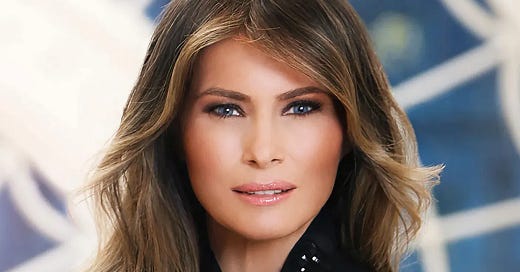



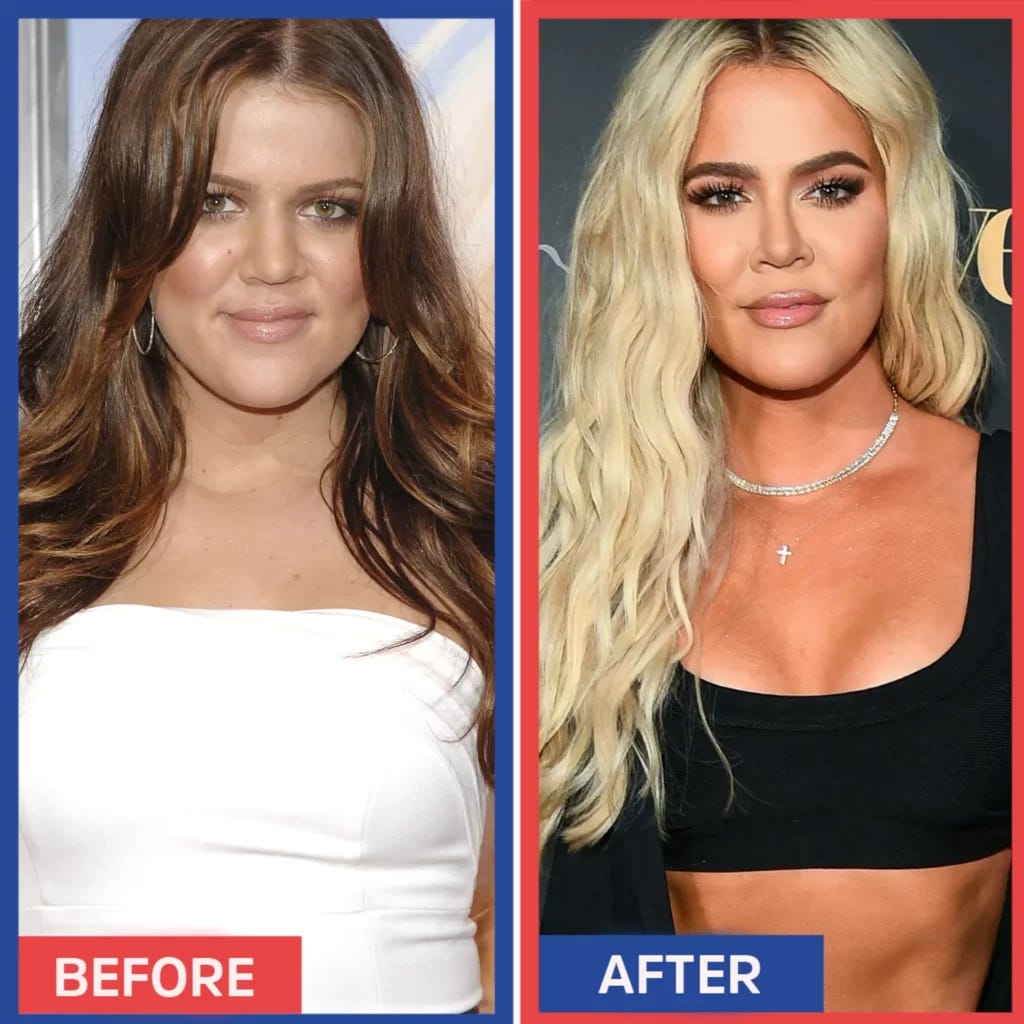
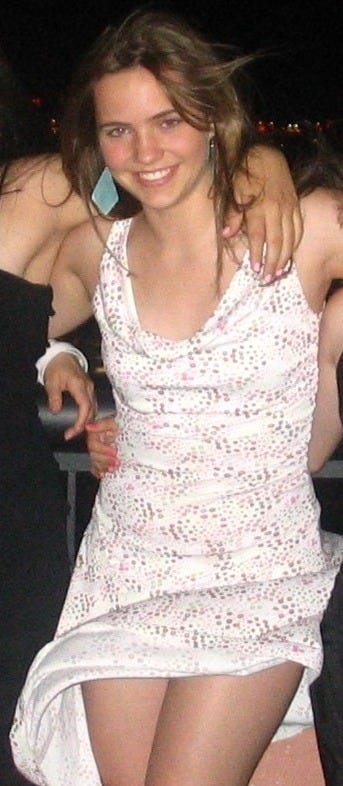
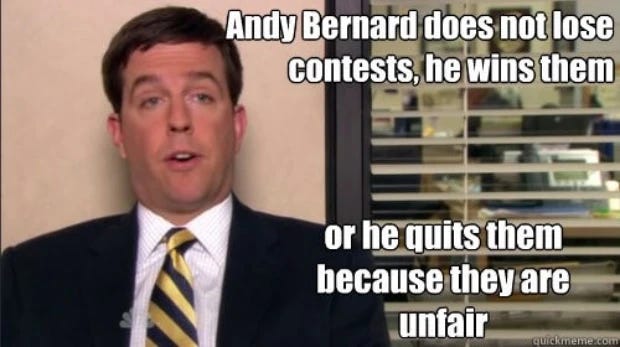
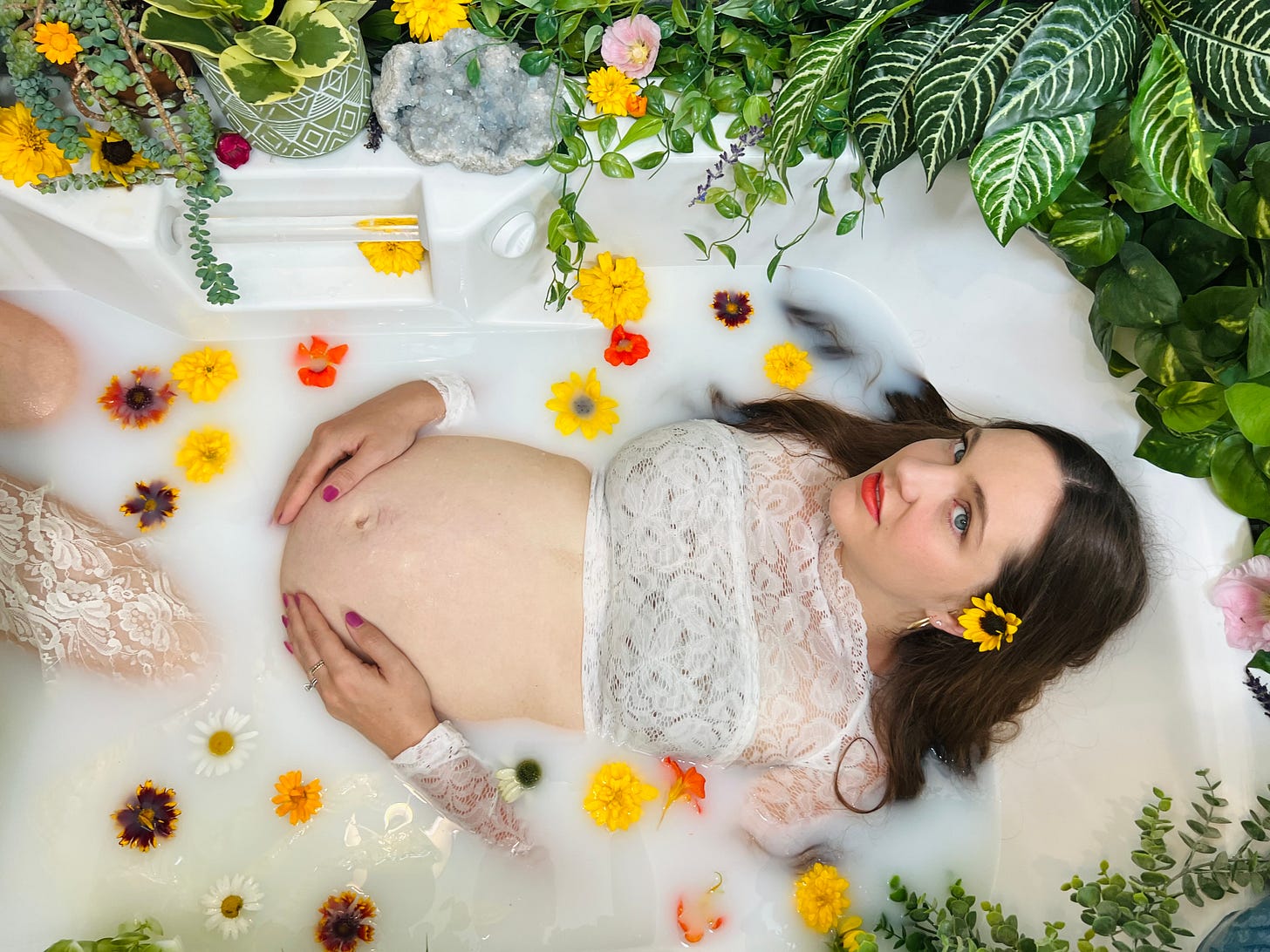
"It’s easy to have ideals and values when they cost you nothing." 💯💯💯 We need that on a T-shirt/bumper sticker
Continually celebrating your ability to write it down. Seeing the cancer quandary you're in and exposing it.
I'm hoping this writing therapy is as good for you as writing on Substack is for me, Julia!
Gotta say. You at 14 took my breath away! You were gorgeous. And I understand being bogged down in the the beauty culture.
Me at 14? I was so much taller than the boys, they wouldn't ask me out. I thought it was me, even tho I was "easy to look at." Yeah. That was said.